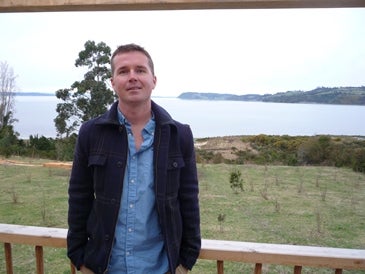
- PhD Completion: May 2012 – Auctions for coast energy resources
Biography
After completing the CIIP program, Rob turned his full attention to his dissertation “Auctions for coastal energy resources,” which addresses contemporary policy and economic issues regarding the divestment of public oil, gas, and wind resources on the U.S. outer continental shelf. He finished this work in March 2012 and graduated with a Ph.D in Environmental and Natural Resource Economics in May 2012. A manuscript from the dissertation, ” Auction Designs for Allocating Wind Energy Leases on the U.S. Outer Continental Shelf” was published in the May issue of Energy Policy and has been part of the policy discussion in Washington D.C. surrounding how to best structure offshore wind energy lease auctions. For this work, Rob was awarded the 2012 Greg J. Lessne Award for excellence in the study of natural resource markets and economics from the Department of Environmental and Natural Resource Economics at the University of Rhode Island.
Since graduating, Rob has worked with the Natural Capital Project (http://www.naturalcapitalproject.org/), an interdisciplinary research group working to develop science capacity to integrate information about nature’s benefits into policy making. The Natural Capital Project is collaborative venture between Stanford University, the University of Minnesota, the Nature Conservancy, and the World Wildlife Fund. Rob’s role as a postdoctoral environmental economist working on marine topics has given him the opportunity to work on a broad range of topics with ecologists, biologists, coastal engineers, software developers, and more. This work has spanned from using natural defenses to protect vulnerable coastlines from storms, to incorporating ecosystem information into business decisions and national accounts like GDP. It has taken him all across the Western Hemisphere engaging with scientists, policymakers, and stakeholders. Rob’s time in the CIIP IGERT program was invaluable in preparing him to hit the ground running with the requisite scientific breadth and communication skills necessary to thrive in this type of work environment.
One of Rob’s first projects with the Natural Capital Project was to construct a predictive spatially-explicit model for offshore wind energy as part of their open-source modeling platform, InVEST (http://www.naturalcapitalproject.org/download.html). This is the first publicly available model of offshore wind energy that predicts value over space, using several common metrics in energy project finance such as net present value and levelized cost of energy. This information is important as it allows decision makers to assess tradeoffs between different offshore user groups in dollar terms when siting a wind energy facility. It can also be used to predict the market price needed to ensure a fair market rate of return to a developer, a critical issue in the issuing of power purchase agreements. This work debuted at the annual meeting of the American Association for the Advancement of Science (AAAS) in Boston in 2013. A news story covering this can be found here (http://www.midwestenergynews.com/2013/02/26/new-england-offshore-wind-planning-offers-lessons-for-great-lakes/) and another here (http://woods.stanford.edu/news-events/news/open-source-software-can-help-site-offshore-wind-turbines).
Rob’s thoughts on science: This may not be very self-serving, but ecosystem service science needs more people with economics degrees! Translating changes in ecosystem function to changes in human well-being is critical for demonstrating the value of the environment; however, the science behind that needs significant work.
Selected Publications
Click here for full Curriculum Vitae.
